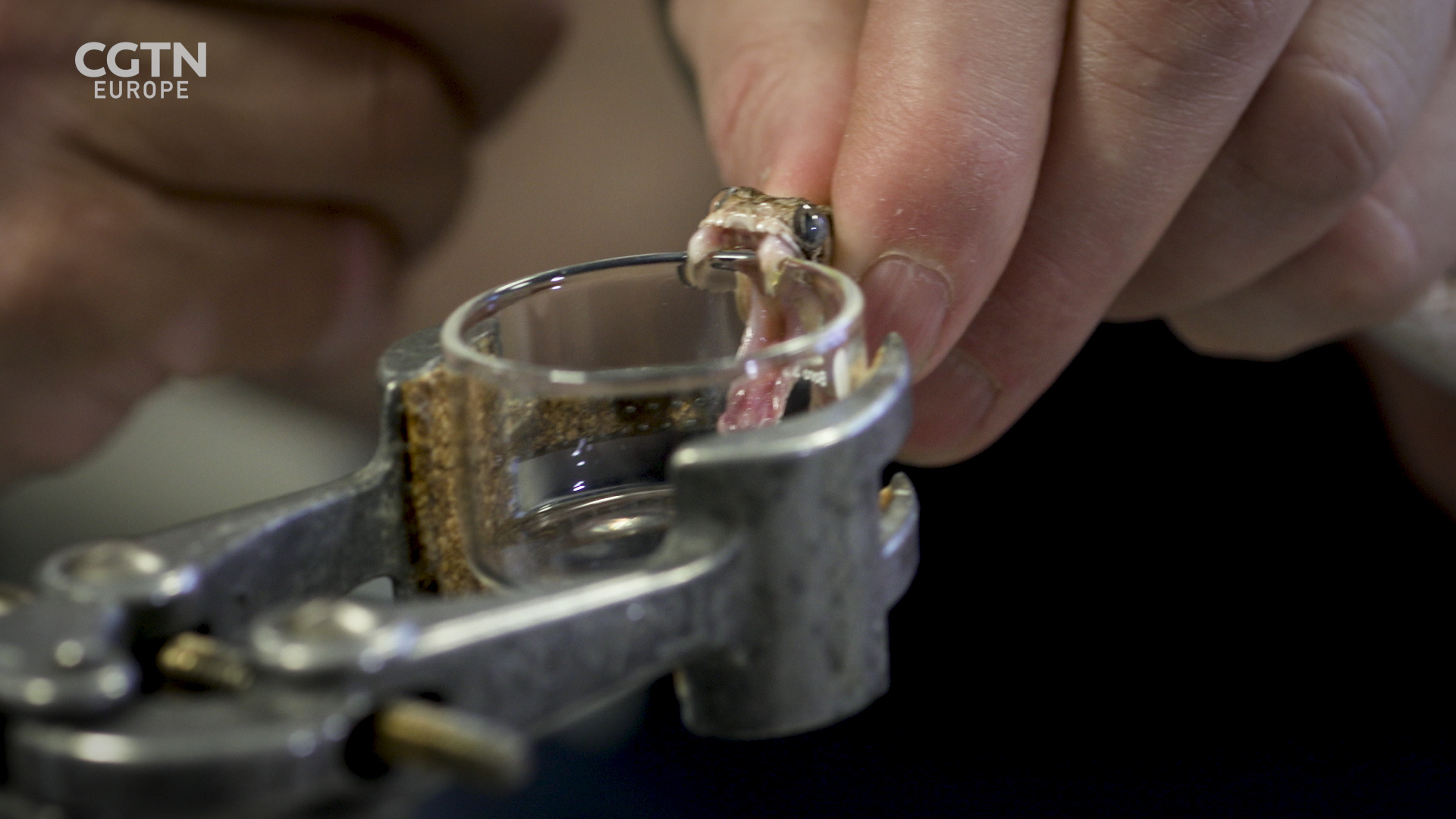08:21

Scientists at the Liverpool School of Tropical Medicine are racing to produce a universal snakebite antivenom that could save tens of thousands of lives a year.
Making antivenom is arduous and expensive, using methods unchanged since the 19th century. The Wellcome Trust, a major British science charity, has injected 80 million pounds ($100 million) into research to update the process.
To find a treatment that can work across the world, they have assembled a collection of the most deadly snakes in the world.
Making antivenom currently involves milking snakes for their venom, which is then injected into horses, sheep and other animals. As the animals' bodies battle against the venom, they produce vital antibodies, which are then extracted and used to create antivenom for human use.
The team at the LSTM are working on a new treatment that can tackle the effects of a bite without needing to be specific to the exact type of snake. To do so, they still need to go through the dangerous process of handling the poisonous reptiles and encouraging them to bite down and excrete their venom for testing. Emma Keeling from CGTN Europe's RAZOR saw how the process works.

Experts at the LSTM are working to make a universal antivenom (Credit: CGTN's Razor)
Experts at the LSTM are working to make a universal antivenom (Credit: CGTN's Razor)